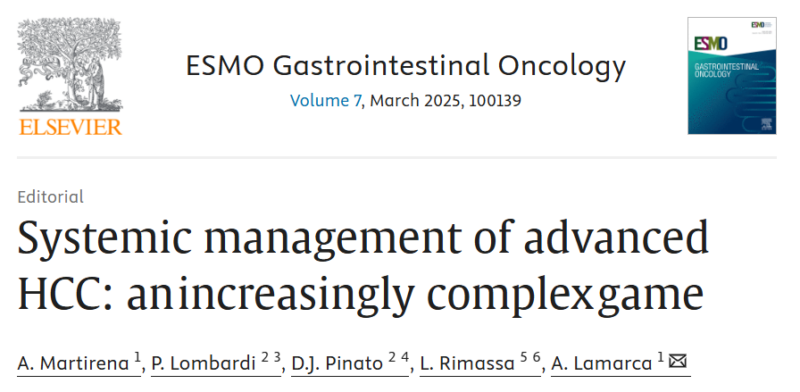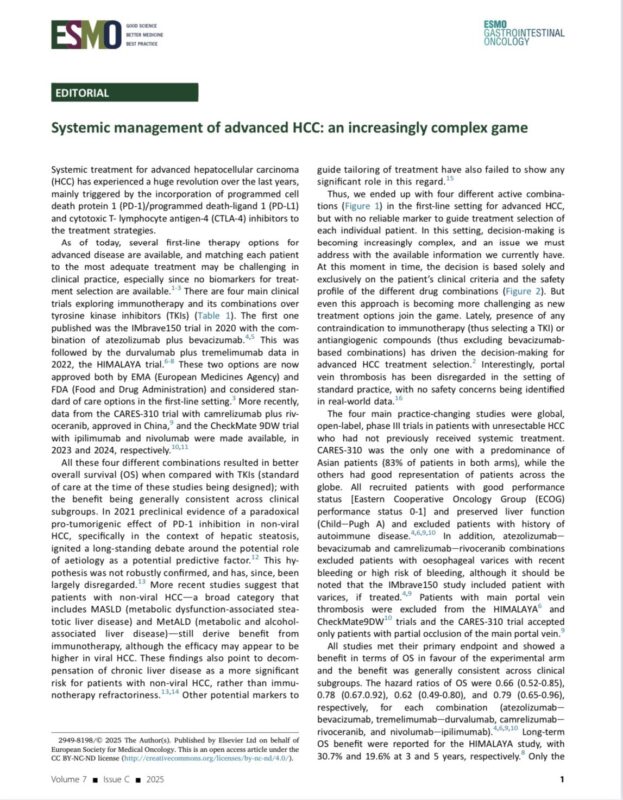Andrea Martirena, Medical Oncology Resident at Department of Medical Oncology – OncoHealth Institute – Health Research Institute, shared an article she and colleagues authored on X:
“Systemic management of advanced HCC: an increasingly complex game.
Full text here.”
Systemic management of advanced HCC: an increasingly complex game
Authors: Andrea Martirena et al.

The treatment landscape for advanced hepatocellular carcinoma (HCC) has evolved significantly with the introduction of immune checkpoint inhibitors (ICIs), specifically PD-1/PD-L1 and CTLA-4 inhibitors. Several first-line therapy options are available, but no biomarkers exist to guide treatment selection.
Four major phase III clinical trials have demonstrated the efficacy of immunotherapy over tyrosine kinase inhibitors (TKIs):
1. IMbrave150 – Atezolizumab + Bevacizumab
2. HIMALAYA – Tremelimumab + Durvalumab
3. CARES-310 – Camrelizumab + Rivoceranib
4. CheckMate 9DW – Nivolumab + Ipilimumab
All four improved overall survival (OS), with benefits generally consistent across clinical subgroups. The CheckMate 9DW trial reported the highest objective response rate (ORR) of 36%, followed by IMbrave150 (30%).
The lack of predictive biomarkers complicates treatment selection, leaving decisions reliant on clinical factors and toxicity profiles. While atezolizumab + bevacizumab remains the preferred regimen for most patients, tremelimumab + durvalumab offers a lower-toxicity alternative, and nivolumab + ipilimumab may benefit select patients despite higher immune-related toxicity.
With comparable efficacy across etiologies, including non-viral HCC, treatment choice hinges on balancing response rates, toxicity, and patient-specific contraindications. Future research must focus on biomarker discovery to personalize therapy further.

